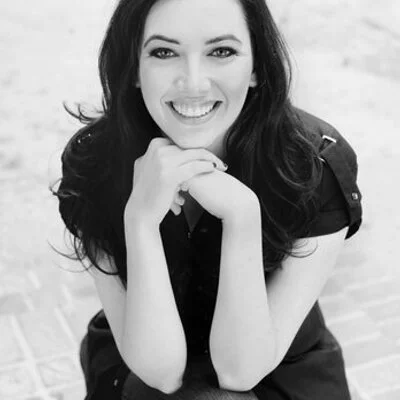Come On Over, the Content Is Great!
photo credit: Jaime Fernández, via Pexels
It’s been about a year since The Girls Lounge was called out from the main stage of a conference by the CMO of Lane Bryant, Brian Beitler:
"I looked in there this morning and I saw only women… You can't move a conversation forward with one gender."
Does he have a point? Yes.
If we take a step back and look at the conversation around equity, parity, and shaping a new paradigm on the macro level, we need men working with us. No question. However, on the micro level, I believe in the power of bringing people together through stories — and “IRL” events are a great vehicle through which to do it — but substantial efforts to create equal representation at major conferences are often met with more excuses than change,which is why women’s events boomed in the first place.
Ten years ago, the landscape was very different. There weren’t as many women’s organizations or as many professional events in general. Women needed and wanted spaces to share their stories — the struggles, the triumphs, the questions, and the dreams that they often felt they couldn’t or were never asked to share within their companies — without being filtered through men.
Looking at the Lean In Women In the Workplace 2017 Study (which is where #MentorHer originated), the data shows, as we know, that men and women have different views of the workplace and that women get less support than men in advancing their careers. This special culture of sharing between women at women’s conferences and events has been an important part of women building more equity and power in the workplace. A study by Shawn Achor and Michelle Gielan in partnership with the Conference for Women (a national series of personal/professional development conferences) tracked 2,600 women and found that “the likelihood of receiving a promotion doubled” for 42% of attendees within a year of attending their conference. Yes, doubled.
But it's also 2018 — and women are still behind.
If you look at the speaker line-ups at women's events — and the diversity of qualified women speaking — compared to co-ed events, we know that great content and knowledge-sharing isn’t crossing over.
When compared head to head, women aren’t getting booked at the same rates as men to speak, let alone women of color. That's a problem. (To those of you moaning about the “woman desert,” attend a women’s conference. I can guarantee you will meet more women that speak.) When women do get booked, they don’t get equal space to speak and are often placed on panels with 5 panelists or as hosts of breakout sessions for smaller segments of attendees instead of on main stage keynotes and fireside chats. And they definitely are not getting paid the same as men to speak.
Kristin Luck. Photo credit: Jennyfurniss [CC BY-SA 3.0], via Wikimedia Commons
There is, however, little data about the rising number of women’s conferences over the past decade, or any data comparing the number of women’s conferences to those that are co-ed. Speaking with other organizers in the space, like Kristin Luck, Founder of Luck Collective and Women In Research (WIRe), we all agree that there are more — and it feels like a lot more. The Forbes Women’s Summit, Create and Cultivate, TEDxWomen, and the Girls Lounge are just a few examples. This would imply that men are missing out on a significant amount of content being shared at these all-women professional events, but how much exactly?
Without data to tell us, we don’t really know.
Luck shared that in her experience with WIRe:
Although there’s an argument for creating community amongst women and keeping our events man-free, what we’ve realized is that it’s incredibly tough to move the needle on diversity when men are excluded from the conversation — because that’s where a lot of the power is centralized.
And they aren’t alone. Many women’s organizations, like Women Catalysts, have had “open” events, and, in their case, some men do attend, but we need more men in the room.
If it is true that stories help us connect to other humans and make us more empathetic and understanding of others, it’s our responsibility as curators and experience designers of women’s events, where appropriate, to ensure that people of all different backgrounds have access to great content.
While it's important to push conference organizers to do a better job of curating what happens on their co-ed stages, it’s also time to open the doors to women-only events and for men to start showing up, because the content and knowledge-sharing happening at these events is awesome, and men? You are missing out.
Men, join us.
By participating, the hope is that men will see what’s missing when there isn’t gender balance at other events — and join us in giving women equal places on stage.
Brady Hahn, Consultant & Founder of Insight Collective, has designed 200 activations for clients as a strategist and curator, reaching over 100k professionals at conferences and events around the world. Her work with the Insight Collective includes The Speaker List, connecting professional women to speaking opportunities and event organizers to a diverse cross-section of women experts from across the country. Follow her on Twitter @bradyhahn.



